October reading wrap-up 📚
where I read a mixed bag
Fellow booklovers,
How was your Halloween? Did you read any spooky books? I read one and I loved it. Other than reading, I have been playing Cozy Grove. It’s such a cute game and I am addicted to decorating my tent and the island.
I also started crocheting again after my last project last year. I am currently working on a bag. The picture below is when the bag was only 3/4 finished and now, before writing this, I just finished it. It turned out so cute! But I’m too lazy now to take a picture now.
Everything I read in October
As always, my monthly reads is a mixed bag. Enjoy!
Stuff Matters: The Strange Stories of the Marvellous Materials That Shape Our Man-made World by Mark Miodownik
Mark Miodownik is a materials scientist and engineer. In this book, he writes about various materials that have shaped human culture - materials which we ignore in everyday life. He invites us to take a closer look at these materials, our relationship with them and how they affect our lives. He states that the book is no way an exhaustive list of every material ever existed but he invites us to read more about the materials he mentioned namely; steel, paper, concrete, chocolate, foam, plastic, glass, graphite, porcelain, and implants.
The book is relatively short despite the wealth of information it provides. Miodownik writes as if each material is a main character in a fiction novel. He weaves personal stories and his encounters with the materials with the material’s history and the importance of it in our life.
My favorite chapter is the one about paper entitled Trusted. Everyday, from the moment we wake up, we use paper. Our house is decorated in paper. Most of our food comes in a type of paper. When we leave the house, we always need to bring paper - money, a shopping list, etc. As we go on with our day, we accrue paper in the form of bus tickets, receipts, snack wrappings, etc. We also use paper as a self-expression in the form of the posters we hang in our bedroom, the journal that we write in, keeping a tasteful personal library, or as a chosen medium of art. Despite our digital gadgets, we still largely use paper to communicate to other people in the form of office memos, notices, newspapers, and love letters, among others. The older the paper, the higher value we give it. Such is the trust we give to paper - as a proof of our life.
I now have a new appreciation for paper and steel!
No One is Talking About This by Patricia Lockwood
Where do I even begin to describe this book. It does not have a straightforward plot. Instead, we follow snippets of a life of a woman who is chronically online. I both hate and love this book so much because it spits facts on how we behave on social media. It perfectly encapsulates what it means to be online, the need to have a voice online even though nobody cares and you are just shouting into the void, to always have an opinion or be in the know about something to impress people you don’t really know, experiencing things online because we are too lazy to go outside, how performative our behavior online can be as we arrange our items for that one perfect picture (where’s the truth and where’s the lie), the way information flows everywhere and our need to have “read the piece” least we are ostracized by our community if we haven’t read it, the pressure for influencers to always have a “fresh and unique content”, or the random Google searches when something comes up.
The book starts with paragraphs describing various scenic images that doesn’t make sense. Little by little, it will dawn on you that what you were reading is what happens when you are scrolling on social media.
In Part 2, a tragedy happens to our narrator in real life. There’s a scene where she feels like her tragedy is not being talked about much (hence, the title of this book). Sometimes I feel this way. When something tragic happens someplace else, like a hurricane or an earthquake, I feel so detached with the event despite knowing that some people are suffering. But if something happened to me personally, I feel like it’s not being talked enough!
As our narrator go through the motions of the thing that happened to her, she starts reflecting if her time spent online was wasted time. She sees what matters and what doesn’t. There is still real life to be lived after all. A truly unique book that captures the otherworldliness of the online world and how it shapes the way we think and act.
To Hold Up the Sky by Cixin Liu
Do you think about space often? I do not. However, this book has got me thinking how we are a tiny speck of dust in the vastness of the universe and how anything we do doesn’t matter at all. Yet, we push on with our lives - trying and striving to reach whatever our heart desires. As if the universe revolves around us.
To Hold Up the Sky is a collection of eleven short stories by Cixin Liu, author of the best-selling series, The Three-Body Problem. Normally, I wouldn’t pick this up but my husband said it was good (this is his book) and I also haven’t read anything by a Chinese author so I decided to read this.
Cixin Liu is a science fiction writer and his stories touch different aspects of science fiction. If you think all aspects and plots of science fiction has already been written, I invite you to read this book and see that there’s still so much possibilities. Despite that, the stories have one thing in common - how science and technology affect humanity. From art vs survival, climate fiction, beauty vs technology, the cost of progress, Cixin Liu encompasses several aspects of humankind in this anthology.
The first story is an ode to teachers. It tells the story of an old and devoted teacher in poor rural China and how he accidentally saved Earth from total destruction because of his dedication in teaching his students physics. It was a heartwarming story and the perfect choice for a first story in a collection.
My favorite story is titled Fire in the Earth. It’s a story about an engineer trying to make coal mining a safer industry for its workers - with his father having died of poor working conditions in the mine. He has invented a new way of coal extraction but it ultimately lead to a devastating accident akin to the earth beneath us burning. The project was quickly shut down and the engineer was put on trial for the death of several people. 120 years later, we read a journal from a student visiting a Mining Museum and learning the old ways of extracting coal. The children make fun of the old ways not realizing the sacrifices the generation before them did in the name of progress.
However, like with all short story collection, some are better than others. But I found most stories were really good.
The Thousand Autumns of Jacob de Zoet by David Mitchell
It’s summer 1799 and Jacob de Zoet, a young Dutch man, arrives in Dejima. Dejima is the Dutch East India Company’s (VOC) trading post in Nagasaki where Jacob de Zoet was sent to find his fortune and earn his dowry for a girlfriend back in the Netherlands. While in Dejima, Jacob meets Japanese midwife Orito Aibagawa and falls in love with her. However, they are unable to be together because Orito has been sent away into a mysterious and cult-like mountain temple.
The book is divided into five parts with the first three parts making up the bulk of the book. In Part 1, Jacob arrives in Dejima and discovers a corruption and smuggling scheme by high-ranking officers of his company. By the end of Part 1, he refuses to be an accomplice to this corruption and is punished by forcing him to remain in Dejima more than he is supposed to stay. Jacob also tries to communicate his admiration to Orito but is unable to. On New Year’s Day, Orito is taken to live at the Mount Shiranui Shrine, a shrine with very a shady reputation, by Lord Abbot Enomoto to pay for her father’s debts.
In Part 2, we get to know more about the mysterious shrine and how Orito tried to escape. Orito’s former lover, Ogawa Uzaemon, planned to help her escape but he was betrayed by a trusted friend. I loved this section the most.
Part 3 tells the arrival of the British in Dejima who forcibly attempts to take the trade route of Nagasaki from the Dutch. At this point, the VOC has fallen and Jacob being now the highest ranking Dutch in Dejima, refuses to give up the post. The Brits plan to bomb Dejima but decided to retreat on the last minute.
Part 4 and 5 consists of Jacob’s last remaining years in Dejima and his travel back to the Netherlands (finally!). On his deathbed, he thinks of Orito.
This is my third David Mitchell book and the book I liked the least. I guess there are just certain topics on historical fiction that I like and this was not one of them. The topics on trading routes did not interest me at all. I was bored and kept on skimming. To coast through my boredom of this book, I had started another book in between. I, however, liked the bits about Mount Shiranui and the mystery around it that’s why I kept going. Another tiny reason I pushed on because the writing is something like a “slices of life” of Jacob’s life and I like those types of books.
Jacob de Zoet’s story continues on to Utopia Avenue which I read before this. Mitchell’s books has some sort of universe going in them that’s why I was interested to pick this book up. Sadly, I was disappointed but will still look forward to reading Mitchel’s other works.
This Mournable Body by Tsitsi Dangarembga
It was only when I decided to read this book next that I noticed that this is the third book of Dangarembga’s Nervous Conditions trilogy. I, however, saw that this book alone was shorlisted for the 2020 Booker Prize so I guess it was okay to read as a standalone.
In This Mournable Body, we follow a middle-aged Tambudzai - broke, unemployed, and living in a hostel for young girls. She is far off from the success she has imagined despite her advantages of having a Western education. Earlier books from this trilogy follows a young Tambu navigating through the educational system as a means of upward mobility but also as a source of familial tension.
Tambu eventually moves into a widow’s house, still unemployed. She is aware of her dire economic conditions but doesn’t have the courage to change it. Her inaction is irritating but I think that reflects me, as a reader, in a place of privilege. Eventually, Tambu finds work as a biology teacher. Yet, in her every turn to make her life turn up for the better, she is faced with disappointments that are sometimes of her own making. Tambu is bitter, unlikeable, and obsessed with the concept of success that has been fed into her through the educational system. She feels hopeless like how hopeless she is of her own country, a new independent country just coming out of a civil war. I can feel her anguish when she thinks she has done everything to be successful yet still fails to be. Needless to say, Tambu is not in a good mental state. This causes her to lose a job as a teacher. She gets another job but it also ended in a disgrace, not just for herself but also her family and village. By the end of the book, she is employed by her aunt and is only starting to realize that success may not be the same as the one she first sought.
I love this book. There are so many anxious feelings that Dangarembga articulates so well. I hope to get copies of the first two books so that I can understand Tambu’s feelings better about the war.
We Have Always Lived in the Castle by Shirley Jackson
As Halloween approached, I was craving for some spooky, sinister reads (thanks social media). I love my horror books in audio format. I feel like there’s an extra spooky dimension when a scary tale is being read to you, especially if the narrator is really good, but best of all if the opening paragraph is:
My name is Mary Katherine Blackwood. I am eighteen years old, and I live with my sister Constance. I have often thought that with any luck at all I could have been born a werewolf, because the two middle fingers on both my hands are the same length, but I have had to be content with what I had. I dislike washing myself, and dogs, and noise. I like my sister Constance, and Richard Plantagenet, and Amanita phalloides, the death- cup mushroom. Everyone else in my family is dead.
Werewolf? Dead family? I was hooked immediately. I finally found an opening line that equals to that of Rebecca.
Like most of Jackson’s stories (this is my third story of hers), the horror is not supernatural but rather in what’s not being said. As you read along, you will get an inkling as to what happened to the family but nothing is being confirmed until the very last end. Only the who is answered but never the why. This is a book I’ll gladly read over and over again and still get a new perspective every time.
The sisters’ relationship is unsettling. They are too much dependent on each other. Both are mentally unstable which I theorize to be as a result of a strict and verbally abusive upbringing. I suspect their codependency is also a result of that upbringing. There’s so much I want to write here but I fear I may give out spoilers.
Although the ending wasn’t entirely a happy one, I felt glad how it ended.
What I want to read in November
Salmon Fishing in the Yemen by Paul Torday - I don’t know anything about this except that I find the title intriguing.
The Book of Disquiet by Fernando Pessoa - a collection of the author’s unpublished work which comprises the “autobiography” of Bernardo Soares, one of Pessoa’s alternate selves.
To The Lighthouse by Virginia Woolf - I found a great edition of this book in a second hand bookshop so I had to get it.
The Sea by John Banville - A book that has been on my radar for a while now.
Don Quixote by Miguel de Cervantes (Part 2) - Maybe?
Also wanted to share that Glenn Diaz’s Yñiga is getting published in the US by Coffee House Press (swipe to slide 6 to see the gorgeous cover) and by Tilted Axis Press in the UK in 2026. I read Diaz’s The Quiet Ones back in April and loved so much that I bought his other book Yñiga from the local publisher. I haven’t read it yet but planning to read very soon.
Have you read any of the books I mentioned above? If yes, let me know which ones and if you liked them.
In case you missed this..
Everything in this newsletter is free for now. And so, every open, like, comment, or restack means a lot to me and I thank you all for your support. If you’d like to further support me, buy me a coffee so that I can continue this work. Thanks again for reading and remember, folks, to read books out of the social media algorithm!



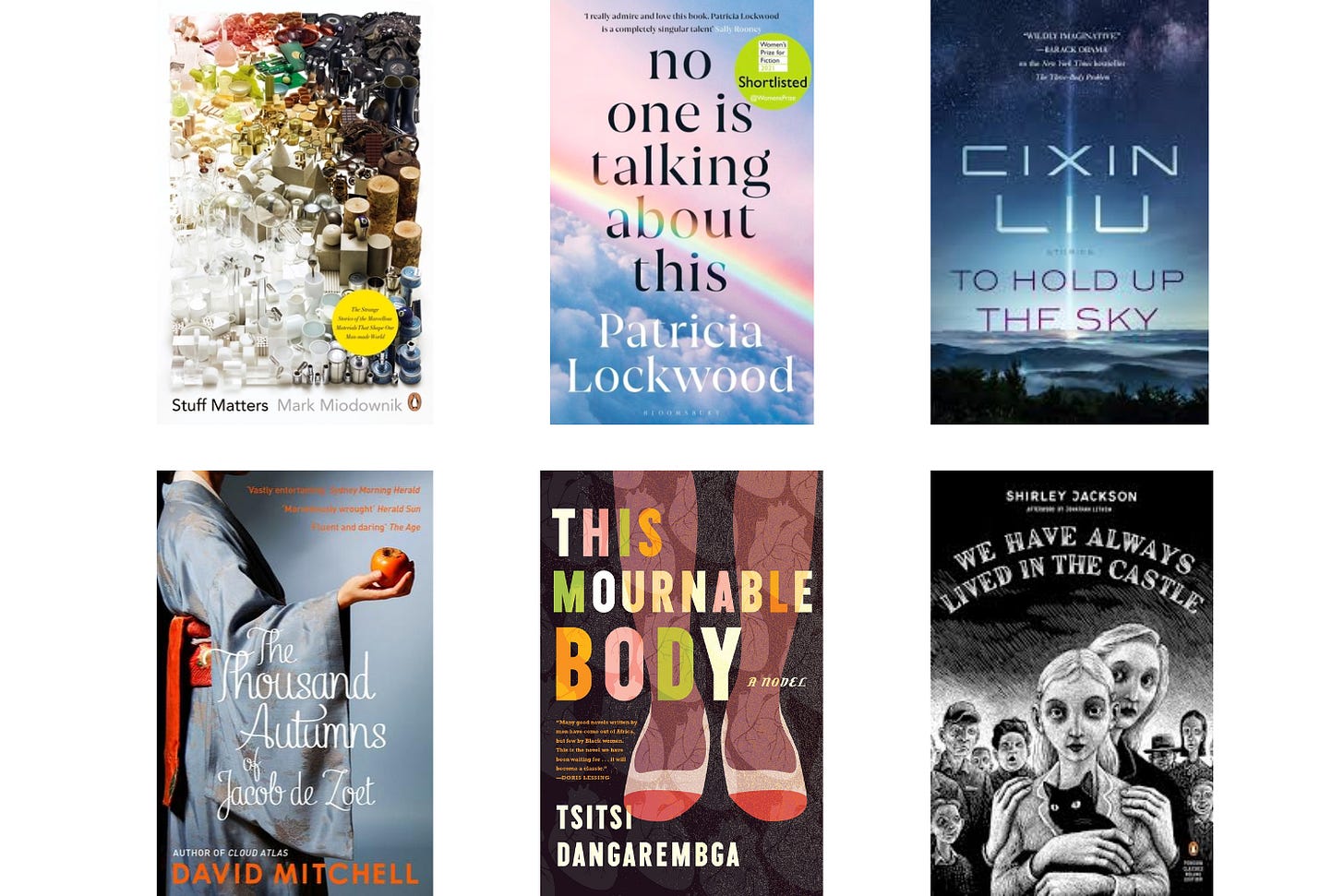
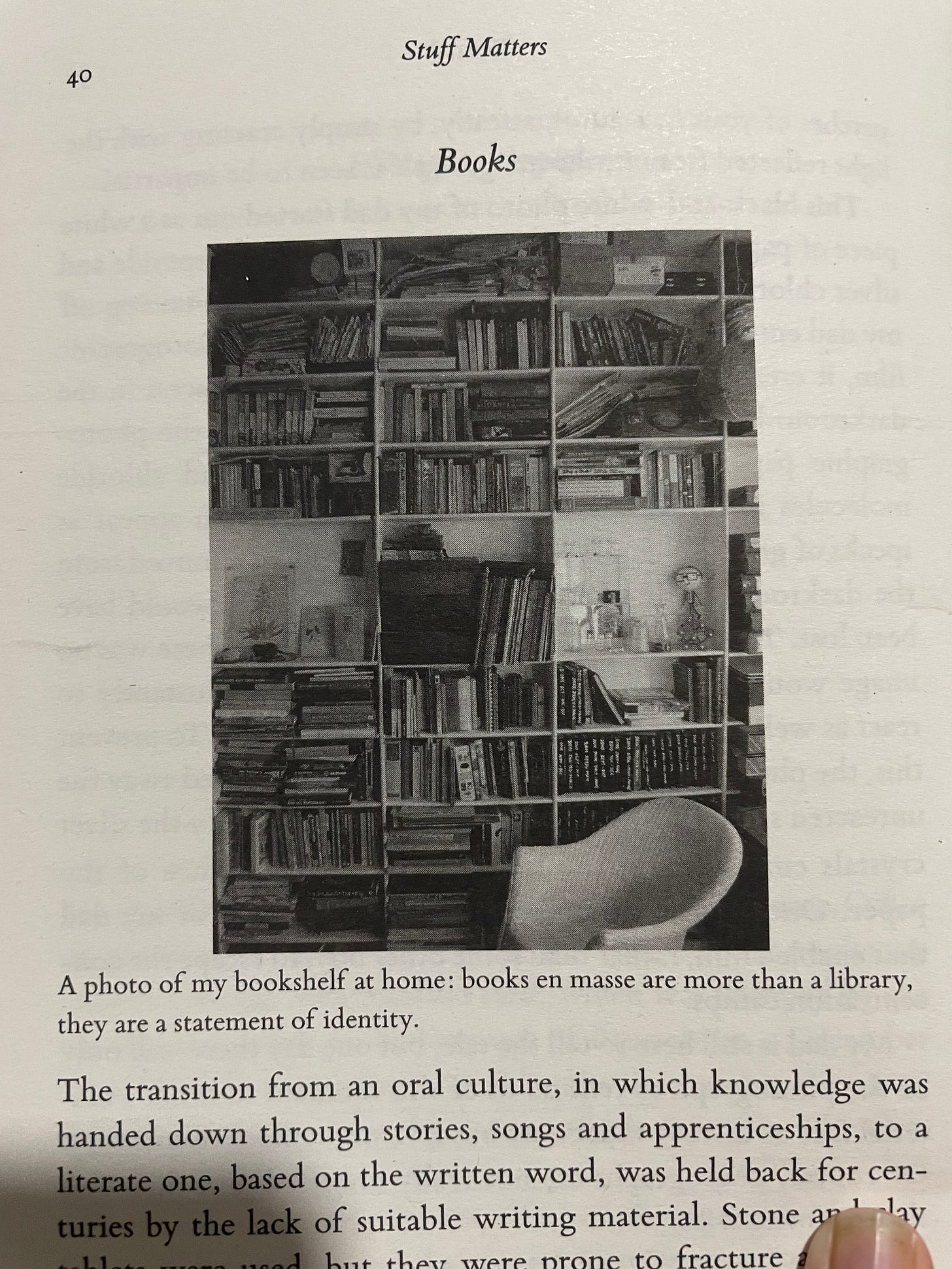

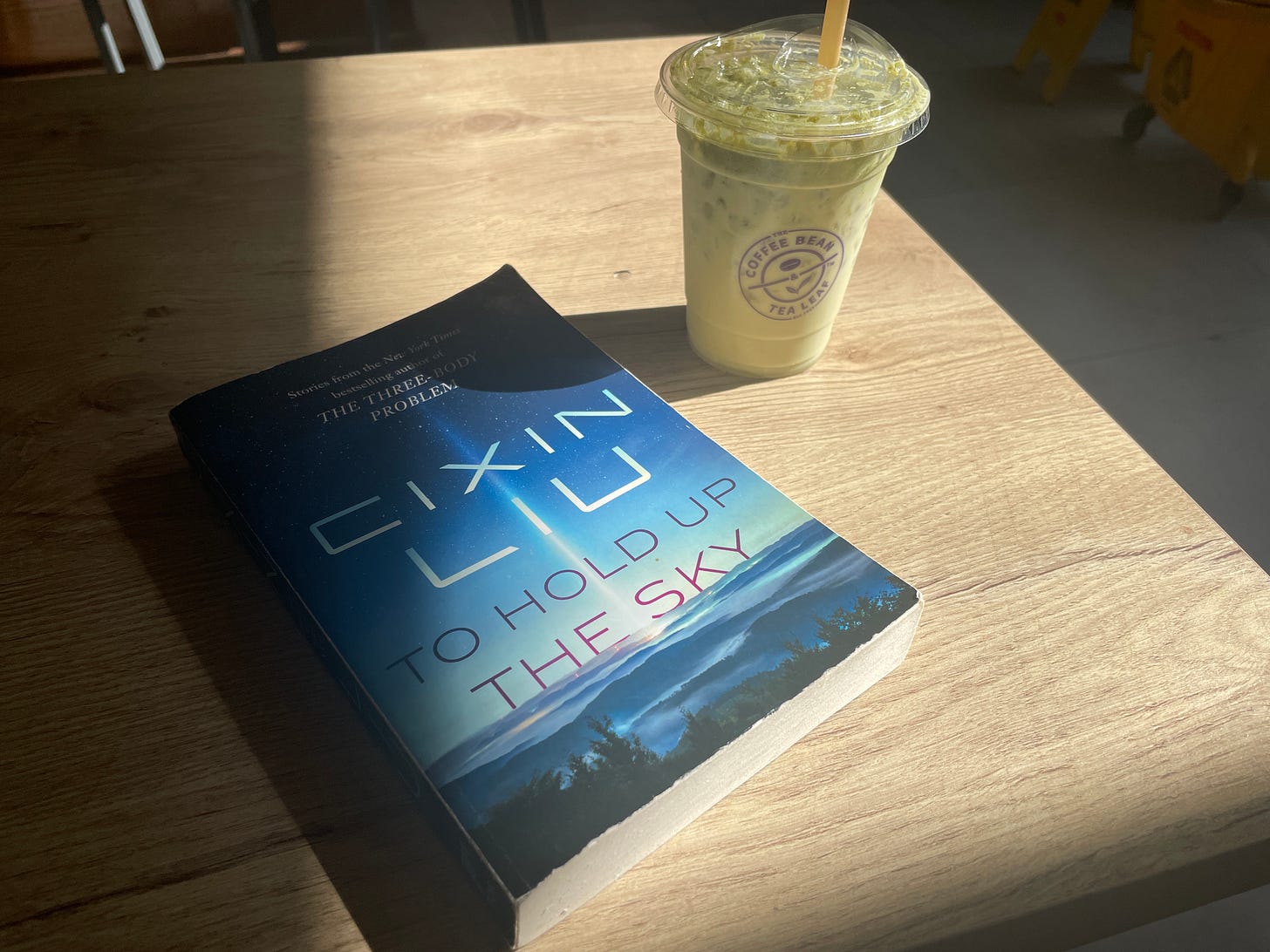
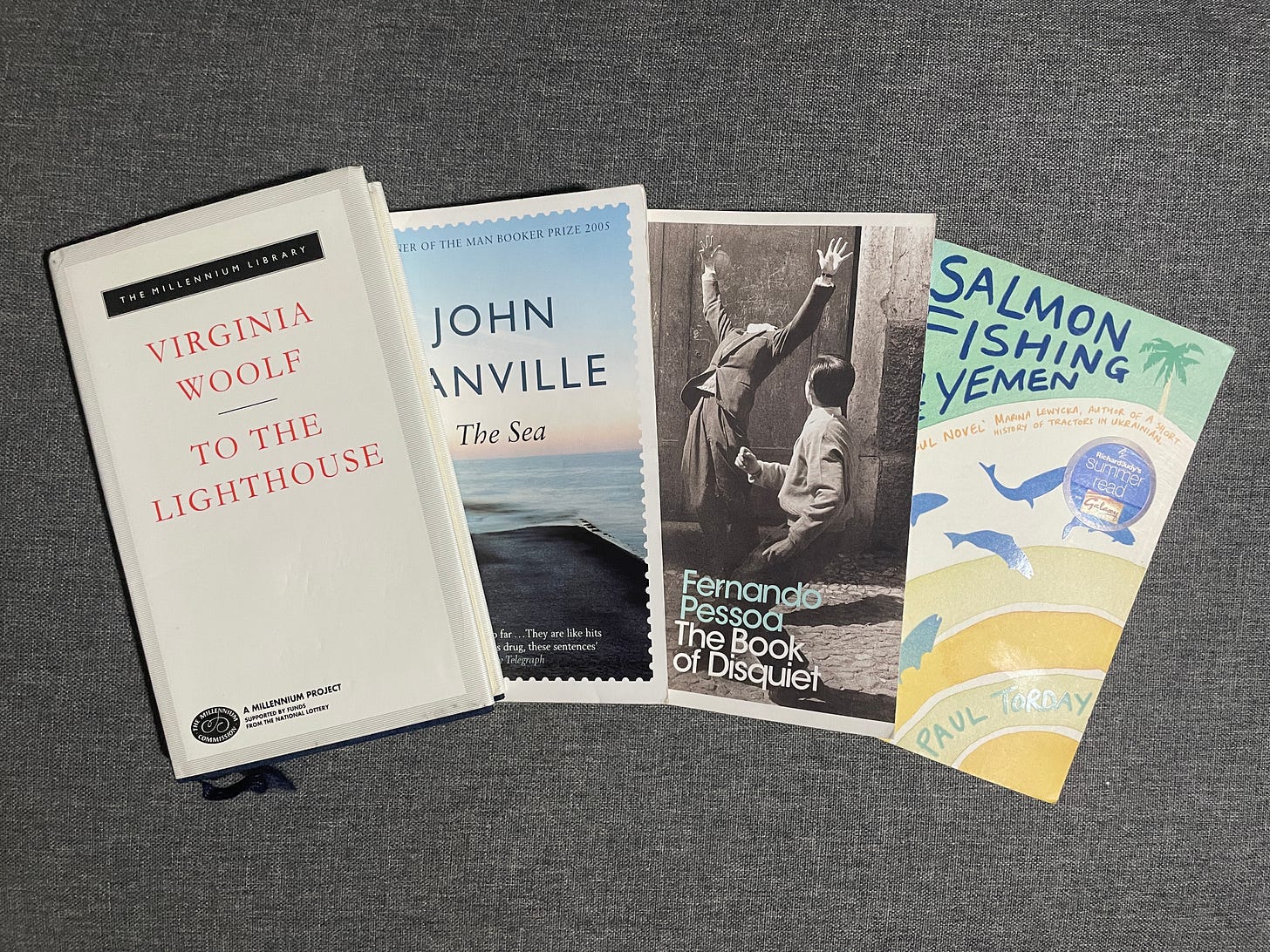

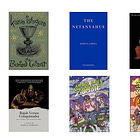
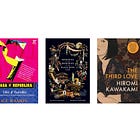
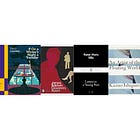
I always enjoy reading your roundups.
I feel bad about Jacob de Zoet, I was so enthusiastic about that one, it's my favourite of Mitchell's books and I've read them all. I'm not necessarily a big historical fiction person but I don't remember struggling with any of the lengthier passages. Luckily he's such a versatile writer and I think it's different from most of his books. I always love Black Swan Green but am hesitant now to recommend it 🫤
I think I'm the only person who struggled with We Have Always Lived in the Castle - it just wasn't grabbing me, I got about 1/3 of the way in but I'll definitely return to it later. I started Carmilla instead, it's a short read as well, shouldn't take me long.
Curious to hear what you think about The Book of Disquiet - I won't even share my opinion so that you can read it with a blank slate!
omg my month of reads was also such a mixed bag!!! https://open.substack.com/pub/shannonwritesnreads/p/its-the-october-reading-roundup-yall?r=1kn712&utm_medium=ios